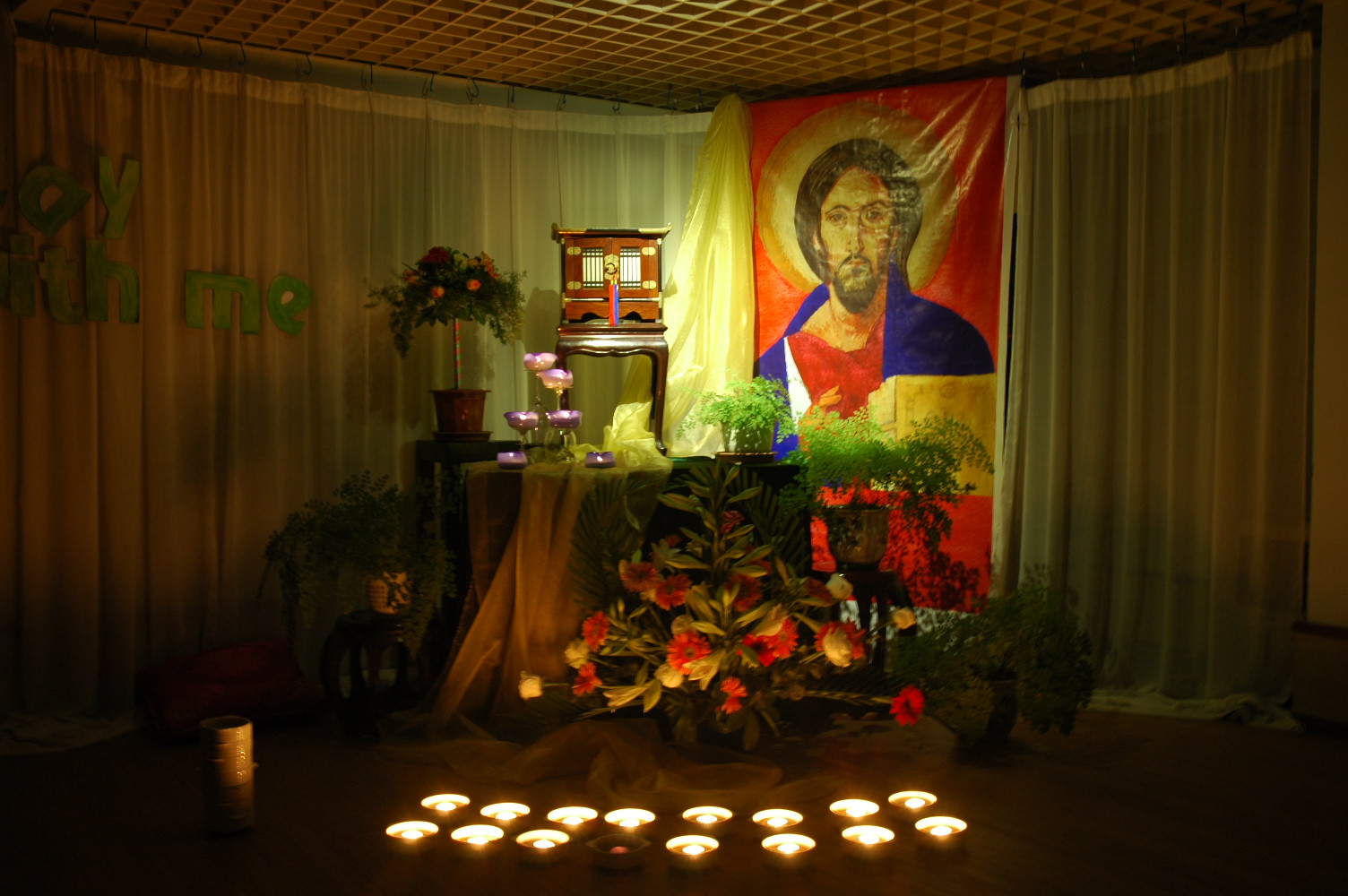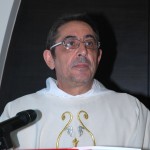HOLY THURSDAY: THE LORD’S SUPPER
As we celebrate the Mass of the Lord’s Supper we commemorate three main events this evening: the institution of the Holy Eucharist; the institution of the Priesthood; and Jesus’ new commandment to love one another as He has loved us.
Some months ago, the History Channel showed a documentary in which scientists tried to construct a 3-D image of the face of Christ.
After many years of investigation and the use of the latest computer technology on the Shroud of Turin, the face of a young man with long hair, and a beard, and scars, and blood stains in his forehead came out.
According to the study the supposed Jesus was about 1.75 heavy and muscular built. But tonight we are given a very different image of Jesus from the one portrayed by the History Channel. We see him on his knees, washing feet. The image of Jesus given to us tonight is surprising, and challenging. It is God becoming less, so that we can become more.
I would like to invite you to reflect on this amazing scene from John’s Gospel, how just on the night before his arrest, during the Last Supper, Jesus bends over and washes the feet of his disciples, and then puts a question to his disciples and to us: “Do you realize what I have done for you?” “I have given you a model to follow,” he says, “You too should wash one another’s feet. As I have done for you, you should do for one another.” I believe it is an amazing scene to reflect upon because we have a “a God who bends over” a God who serves us, a God who is inviting us to be people who bend over and serve one another in humility and love. Blessed are you if you do itâ€, He tells us.
And it is out of this love that He wants to immortalize himself among us, but he does not do it in the way we perpetuate ourselves. He does not want to be remembered like the Pharaohs by the huge pyramids, or like the Mogul Emperor Shah Jahan by its famous and beautiful Taj Mahal palace, or by statues erected on our name for all we have done during our life. Out of his love, He perpetuated himself in two ways – in his priesthood and in the mystery of his Eucharistic.
Although He is the only priest who offered his own sacrifice however in every generation he chooses ordinary men to be a living witness to him by their very presence in the community, to offer again his sacrifice in his memory. The priesthood and the Eucharist are inseparable; one cannot exist without the other. Both, the Eucharist and the priesthood were instituted simultaneously as a sign of his love for us making a new covenant sealed not with the blood of animals as in the old times but sealed with his own blood. “Happy are those who are called to His supper.â€
Over the past decade we all have been scandalized by the revelation concerning certain priests or bishops, or we have experienced the defects of those who are call to continue what we celebrate tonight, their impatience, anger, and I am subjected to it every day, however if we have a look at the people in the Upper Room sitting around the table with Jesus, we will find out that Jesus did not choose angels to be His priests. We will see Judas, who would betray Him. Peter the head of the apostles who will deny Jesus. The rest of the disciples, with the exception of John, will run away and abandon Jesus. Clearly Jesus did not choose angels, but purposely he chose those twelve men. St. Paul sums up his priestly ministry very beautifully when he says; “we have this treasure in earthen vessels, to show that the transcendent power belongs to God and not to us.â€
I believe that the event of the Last Supper and what was instituted that night it is not just a description of what love looked like in the life of a nice Jewish rabbi from 2000 years ago. It was not just the institution of the Eucharist or priesthood. The Last Supper is the mission statement, job description, and guiding principle of anyone who dares to call him/herself a Christian. Likewise what we celebrate tonight is not just a nice piece of history; it is an invitation to the mystery of our own life.
The choice is only ours. I am sure you have heard the saying, “Let’s eat, drink and be merry for tomorrow we will die.†However Christ’s invitation reads, “Eat and drink that you may live.†In the Eucharist Christ perpetuate himself among us and enable us, with all our faults, and imperfections, to be perpetuated in him through the sacrament. Christ lives in us and we live in Christ. And in this way we too fulfill that desire to perpetuate ourselves, but not as I mention before with palaces, stars in Hollywood or with statues of streets named after us. He is inviting us to live our humanity, not in his divinity, because that would be impossible for us, but perpetuating our humanity in His humanity.
Unfortunately, we live in a world that has been caught up in death for a long time. We kill each other in acts of murder, abortion, euthanasia, execution, war, and terrorist activities. We kill ourselves through suicide, drugs and alcohol abuse, overwork, stress, bad eating habits, and physical neglect. We watch as others die from poverty, hunger and malnutrition, unemployment, disease, child abuse, discrimination, and all the laws, policies, practices and attitudes, which contribute to these conditions. So, the question how in the world are we going to perpetuate ourselves in Jesus may very easily spring up into our minds and we may be tempted to act like Judas, Peter or like the rest of the disciples. This is the very reason why we should reflect more often on what went on that night in the Upper Room and reflect on what Jesus said: I am sending you out into the world, among the people from whom I called you. Your mission? It is very simple. Just love them.â€
Fr. Alejandro Salcedo, OP


